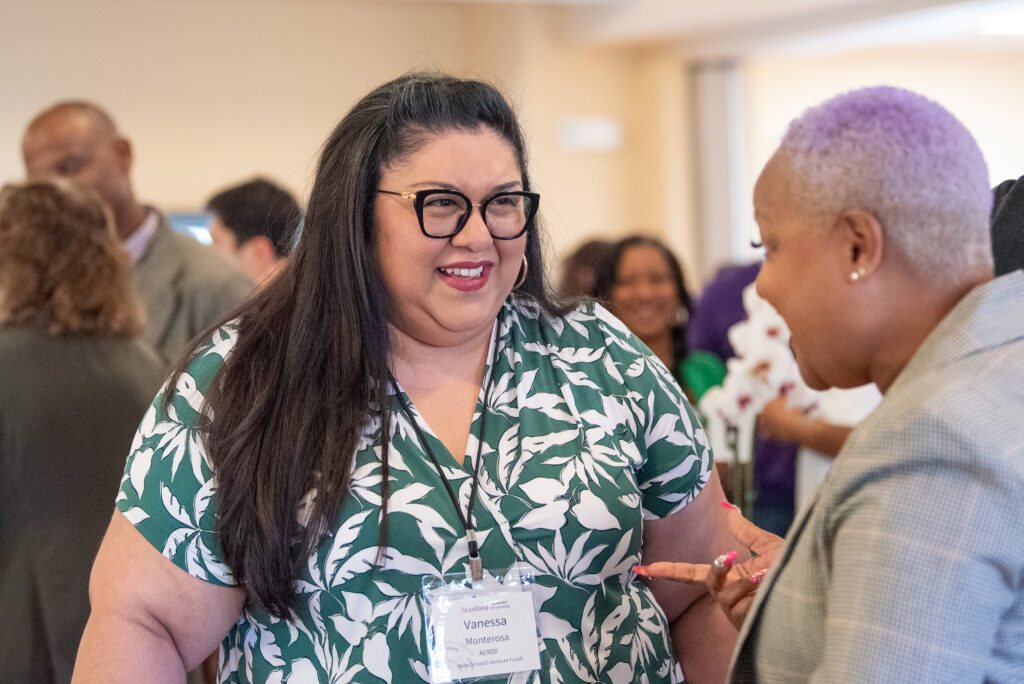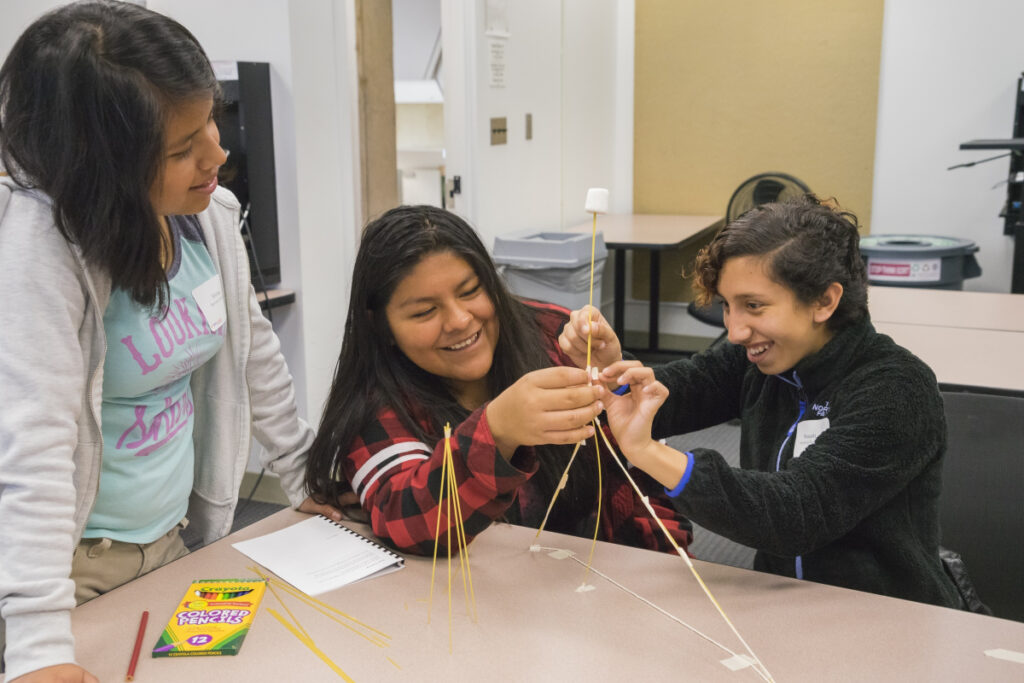Speaking at Stanford’s first-ever Equity in Learning design workshop, Omo Moses, the son of legendary educator and civil rights activist Bob Moses, told the group of community leaders, educators, funders, and researchers who’d gathered for the day that his father was there, “in spirit and in practice.”
“This event embodied his approach to education and the way he organized a classroom: listening, working together in small groups, and then coming together to build consensus,” said Moses, founder and CEO of MathTalk, an organization that creates physical and digital experiences for young children to explore math.
The May 31 workshop was the first major convening of the Equity in Learning initiative of the Stanford Accelerator for Learning, and the result of nearly two years of work by a team of scholars at the Graduate School of Education to create a framework for the initiative, including Professor Bryan A. Brown, Assistant Professor Farzana Saleem, Associate Professor Jonathan Rosa, Associate Dean and Professor Anne Charity Hudley, Assistant Professor Shima Salehi, Assistant Professor Francis Alvin Pearman, and Associate Professor Subini Annamma.
The Equity in Learning initiative aims to provide relevant scholarly learnings to organizations in the best position to deliver them to young people. While research is critical for understanding the causes of educational inequity and for developing and testing potential solutions, the Equity in Learning initiative operates on the premise that research is only useful if it asks the right questions and shares its learnings with educators on the ground. Getting practitioners and researchers in the room together was a key early step in this work.
Crafted with Sam Seidel from the K12 Lab at the Stanford d.school, the workshop created an intentional space for participants to listen, learn, and generate ideas for collaborations that disrupt racism, bias, and inequality in education. A third of the participants were leaders of community organizations, another third represented foundations, and another third were Stanford faculty, staff, and students.
While the event was hosted by the Equity in Learning initiative, faculty from the Stanford Accelerator for Learning’s other initiatives were in attendance, underscoring that equity is foundational to the work of each.
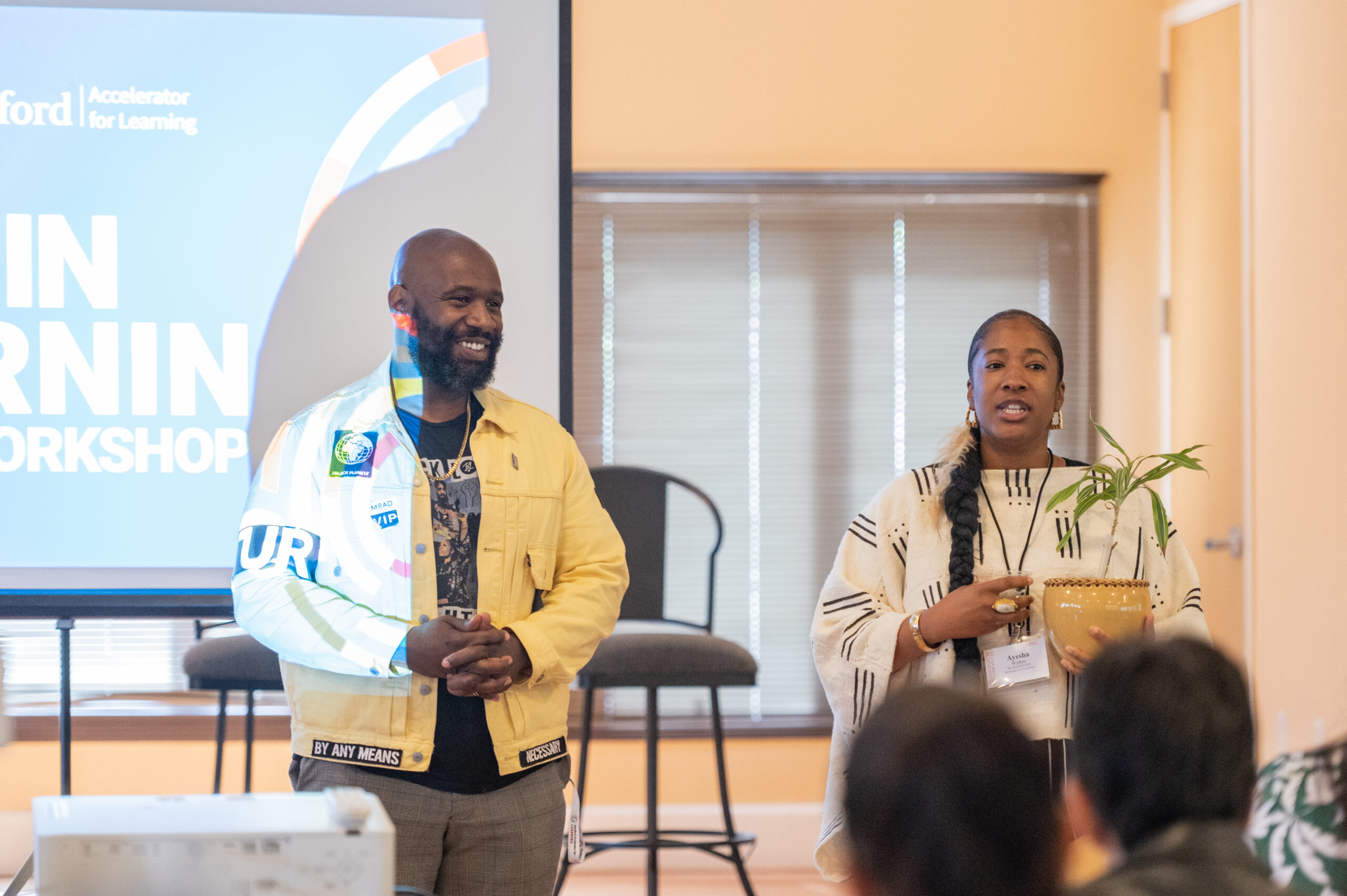
The day began with an invocation to community practice by Karega Bailey from SOL Affirmations and Ayesha Walker of BE-IMAGINATIVE, who led the group in reflecting on the concept of sankofa, honoring the ancestors and activists who paved the way for the work of the day. Seidel then led the group in two improvisational activities, facilitated by DJ Jesse James, with the participants greeting one another as if they were long-lost best friends and sharing meaningful music preferences. Finally, participants each wrote down a pressing question or problem in equity in education and anonymously passed them around the room, ranking them in order of priority for the day. By the time lunch was served, most of the room knew each other’s names and area of work.
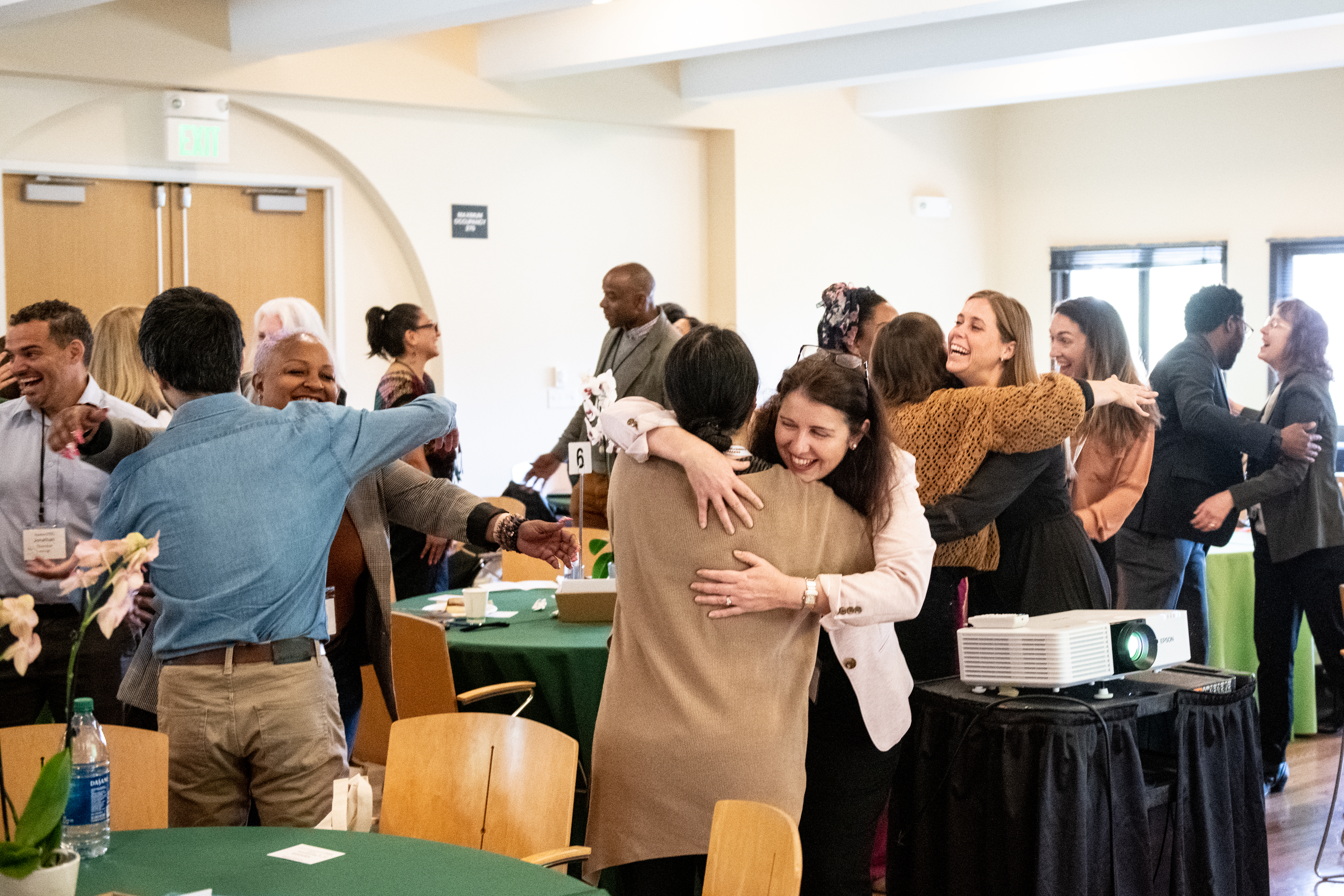
An afternoon panel of lightning talks featured Christopher Chatmon, co-founder and CEO of Kingmakers of Oakland; Randy Seriguchi, Jr., executive director of Urban Ed Academy, Adriana Solís-López, chief development officer at Latinos for Education, and Christina Mei-Yue Wong, special assistant to the superintendent of the San Francisco Unified School District. The panelists reflected on the low numbers of teachers and school staff of color, particularly Black male teachers, and work their respective teams are doing to address the problem. They also commented on the role of research in educational equity.
“There’s a barrier between research that takes years to be peer-reviewed and understood, and the funding community then leaning into a trust-based relationship based on a study commissioned years ago,” said Seriguchi, urging “real-time proactivity” and highlighting the role that researchers and foundations play in connecting organizations to each other due to their birds-eye view of the sector.
Chatmon added that knowledge does not come only from traditional research, but also from the “ancestral intelligence” of indigenous communities globally, and called for broadening the sources of knowledge of what works in education.
An interdisciplinary panel of Stanford faculty built on Chatmon’s point. “As researchers, we need to think about expertise coming from multiple sources,” said Tomás Jiménez, a professor of sociology and comparative studies in race and ethnicity (CSRE) and the founding co-director of Stanford's Institute on Race. Ramón Martínez, an associate professor of education and CSRE, agreed: “Methodologically, the kinds of questions that I ask, and how I ask them, would change in fundamental ways [in partnership research].”
The workshop also brought participants together in small groups to brainstorm around emergent topics from throughout the day, and concluded with a conversation between Moses, his sister Maisha, and Clayborne Carson, professor of history and director of the Martin Luther King, Jr., Research and Education Institute. Maisha Moses, executive director of The Young People’s Project, reflected on the historical significance of her father’s work and the implications for collaborative educational equity work today. “We wouldn’t be here in this space if not for them,” she said, referring to education activists, including her father and Carson.
The reflection on Bob Moses' activism and belief that learning, in particular math education, was a key lever to providing opportunities for Black children, provided a renewed call to action. "Keep on pushing," was how Bob Moses had always signed off. This group, after a day of connection and ideation, was primed to do just that.
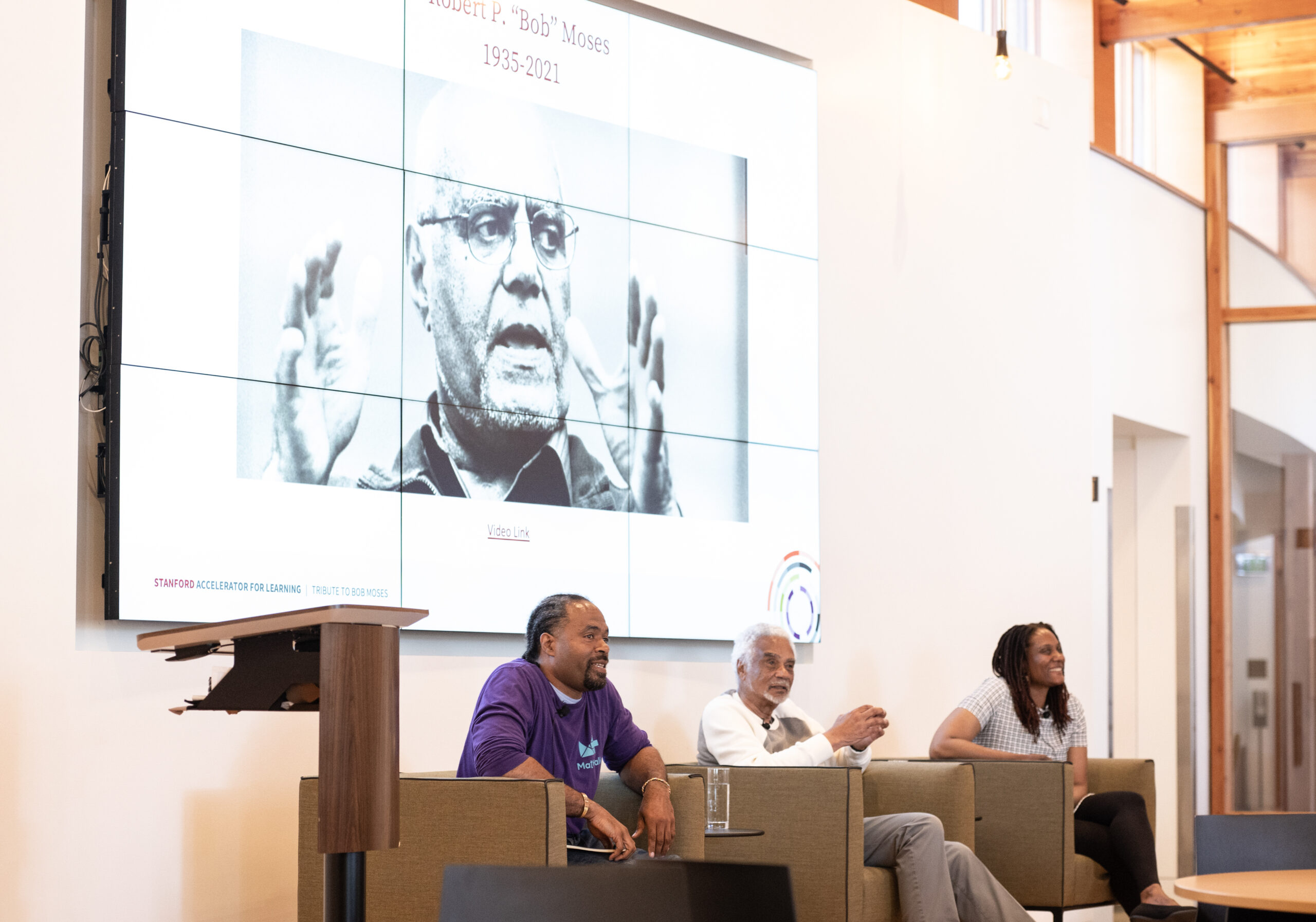
Photos by Sherry Tesler.
